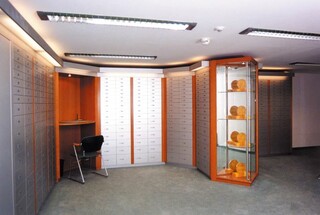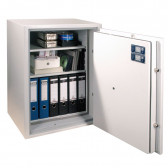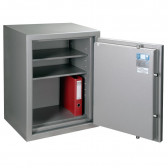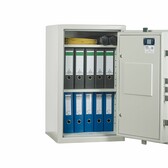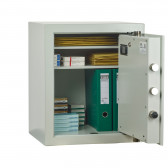Collecting and hoarding valuables is in everyone's nature. Savings and expensive items should be kept in a safe place, because they can become the prey of thieves. At home, valuable possessions need to be kept in a safe. However, there is another option - you can keep both cash and expensive items in a bank safe deposit box. In this article you will find out why it is worth having a safe and a safe deposit box at the same time.
A safe deposit box – what it is, what you need it for and how to set one up
You've probably seen in more than one movie how the main characters use a safe deposit box. They keep weapons, cash, documents and other valuable items there. There is nothing to stop you from securing your property in a safe deposit box.
A safe deposit box is a service provided by some banks. It consists in providing customers with a place to store various items. The deposit is closely guarded and well secured in a vault.
Renting a safe deposit box is a common practice all over the world and costs from several hundred to several thousand zlotys per year. This is not an exorbitant price for the possibility of safe keeping of valuable items.
You can keep any items in a safe deposit box as long as their possession is not prohibited. In Poland it is not allowed to keep in bank deposit boxes:
● weapons (even if you have a permit for them),
● stolen goods,
● drugs,
● perishable goods,
● toxic and radioactive substances.
A safe deposit box is mainly used to store:
● cash,
● gold,
● jewellery,
● documents,
● works of art,
● stamp or coin collections.
Some items held in a depository have only sentimental value. These may be family heirlooms, old photographs or films.
Setting up a safe deposit box is easy. Just go to the bank and sign a contract. You can rent a small box or, if necessary, a large safe. The price depends on the size of the deposit and the period for which you want to rent it. Not only banks provide this service. Private companies also offer safe deposit boxes.
What else is worth knowing about a safe deposit box?
Many people think that only the owner has access to a safe deposit box. This is not true, as in exceptional situations a safe may be opened by, among others:
● the public prosecutor,
● the police,
● special services (CBA, ABW, SKW, AW),
● the Customs Service,
● bailiff.
A bailiff may seize property in a bank safe-deposit box – just like funds in a personal account. A deposit box can also be opened by a bank if you fail to renew your tenancy agreement or pay for the period specified in the agreement. If the landlord does not come to claim the items left behind, the locker will be emptied and the property inside will be deposited elsewhere.
Is a safe deposit box secure?
It would seem that a safe deposit box is the safest place to store valuables. However, thefts do happen. The bank and financial institutions that rent safe deposit boxes are insured against break-ins, but no one can guarantee you that the property you leave behind will not be stolen.
In the event of theft, you will have to prove what was stolen and its value. Only then will you receive compensation. It is a good idea to ask the bank for a receipt for valuables and cash, as it is not standard practice to keep records of what is deposited.
However, burglaries of bank safe deposit boxes are very rare. The media in 2018 reported on a safe deposit box robbery in the Netherlands at a Rabobank branch. The bank was insured, but customers did not recover the stolen items.
A robbery in Munich in 2017 also made headlines. A Russian woman had deposited a total of €32 million in seven safe deposit boxes. When the vault was spotted being broken into, it turned out that 4.62 million euros were missing from one casket.
A home safe – why should you have one?
A home safe should be an obligatory piece of equipment in every home, just like a fridge or a TV set. It is important that it has a high security class, confirmed by a certificate. A safe is definitely more convenient than a safe deposit box, because you have access to cash and other left-over items at any time.
Unfortunately, a home safe is not as secure as a safe deposit box. In banks and institutions that provide deposit services, safes and vaults have a higher security class than home safes. In addition, there is monitoring and a burglar alarm installed.
The security class of a safe tells you what the limit of the protected value is. If you want to insure items left in the safe, the assurance company will require a certain burglary resistance class for the safe. A large amount of cash that you do not intend to use on a regular basis is better deposited in a bank safe deposit box.
It is a good idea to use both a safe deposit box and a home safe. Keep some of your money and valuables in a safe deposit box. Cash for day-to-day needs and valuables that you use daily should be kept in a safe at home.
This may interest you: Storage of jewellery and other valuables
